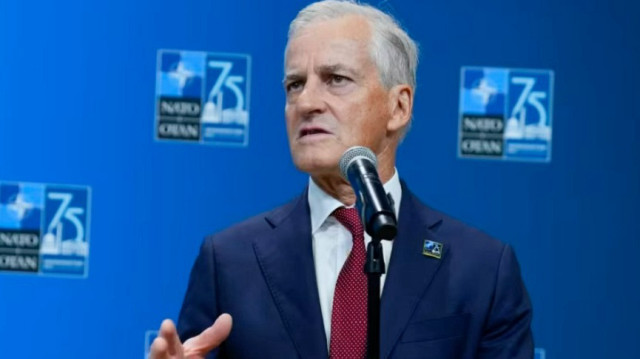
Jonas Gahr Store urges for readiness, vigilance in face of threatening situations
The cable breaks in the Baltic Sea could be a deliberate act, the Norwegian prime minister said, according to the local media on Monday.
“The reports of cable breaks in the Baltic Sea are very serious and worrying. It could be a deliberate act, a hybrid threat,” Jonas Gahr Store told the daily Verdens Gang.
He said Norway is closely monitoring the related developments and has been in contact with Finnish and Estonian authorities.
The premier underlined that Norway has a long coastline, important assets and infrastructure in the seabed.
Consequently, it is a situation which directly and significantly concerns us, he added.
“We have infrastructure for gas exports and fiber cables between Norway and other countries under the sea. The fact that sabotage can happen means that we must have good preparedness in Norway,” he explained.
Against this background, he said that they should raise awareness in the face of this threatening situation.
Last week, Finnish investigators boarded the Cook Islands-flagged Eagle S, which is thought to be part of Russia's oil-carrying “shadow fleet,” suspected of damaging an electrical cable, as well as four telecommunications cables between Finland and Estonia in the Baltic Sea on Christmas Day.
- Baltic Sea incidents
The Baltic Sea has been the scene of several high-profile infrastructure incidents since the onset of Russia's war on Ukraine in February 2022, which heightened tensions in the region.
The latest incident follows the October shutdown of a Finnish-Estonian undersea gas pipeline after the anchor of a Chinese cargo ship reportedly damaged it.
Last month, two telecommunications cables linking Sweden and Denmark were severed. Authorities suspect the Chinese vessel Yi Peng 3, which sailed over the cables, while China denied Sweden's request to investigate the ship.
The Arelion submarine cable, which connects the Swedish island of Gotland to Lithuania, and the C-Lion 1 submarine communications cable that runs between Finland's capital Helsinki and Germany's Rostock city were also damaged in mid-November near Sweden's territorial waters.
European officials have suggested that sabotage could be behind the recent disruptions, potentially linked to Russia's ongoing war on Ukraine. But the Kremlin has rejected the claims, calling them “absurd.”
The September 2022 explosions that ruptured the Nord Stream pipelines carrying Russian gas to Europe remain unresolved, underscoring the region's vulnerability to undersea attacks on key infrastructure.
Authorities across the Baltic region continue to investigate these incidents amid heightened vigilance as geopolitical tensions show no sign of abating.
Hello, the comments you share on our site are a valuable resource for other users. Please respect other users and different opinions. Do not use rude, offensive, derogatory, or discriminatory language.
The floor is all yours.








